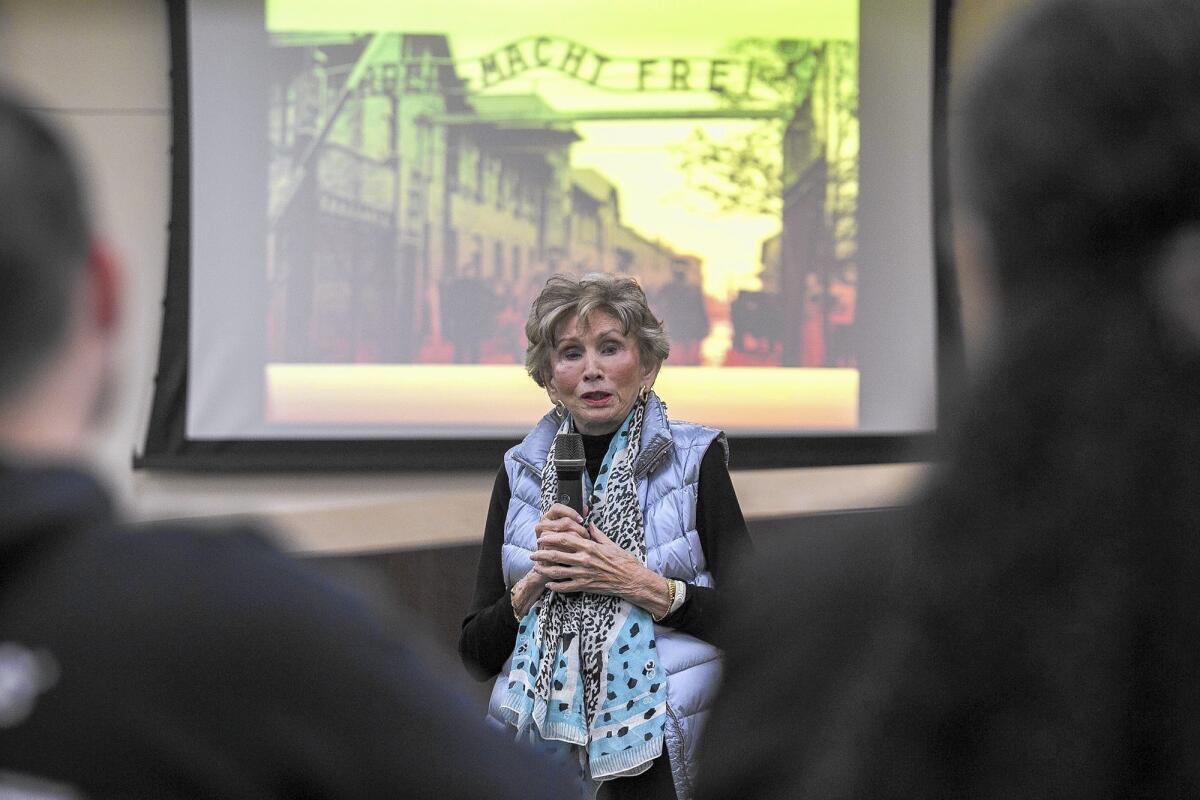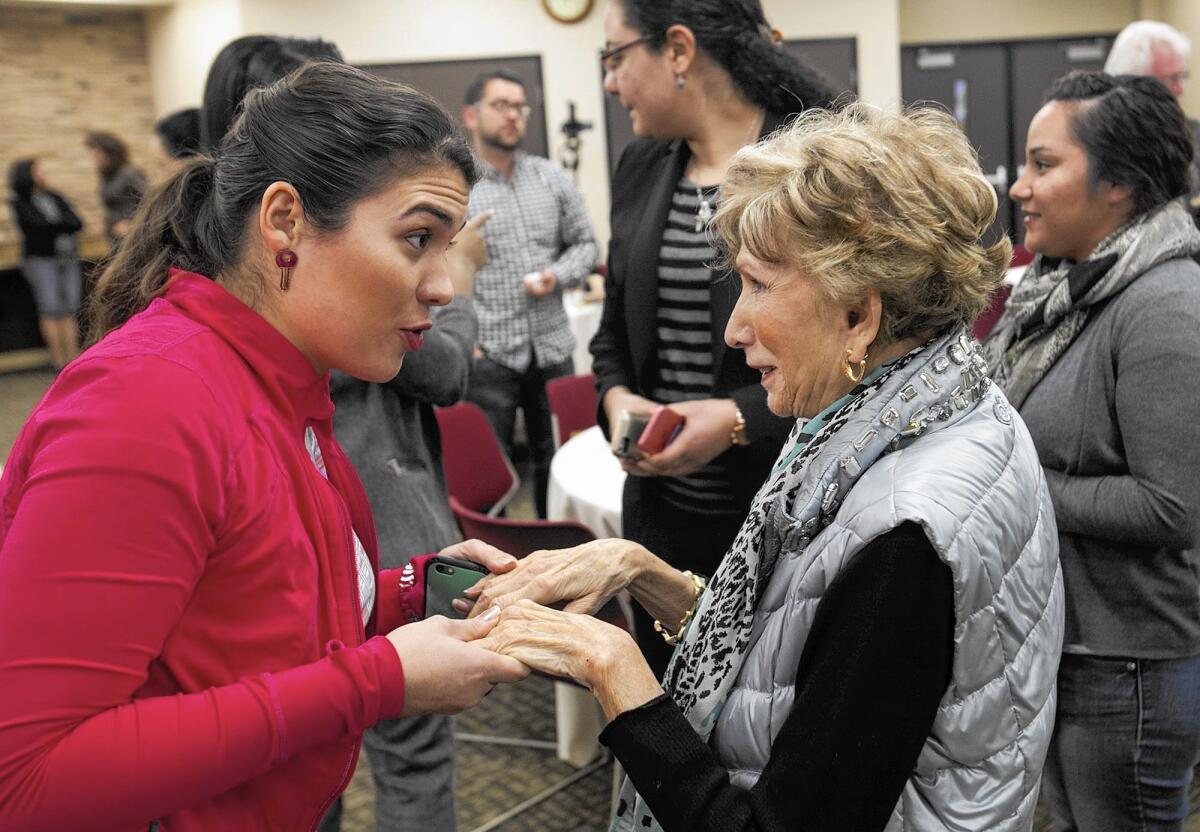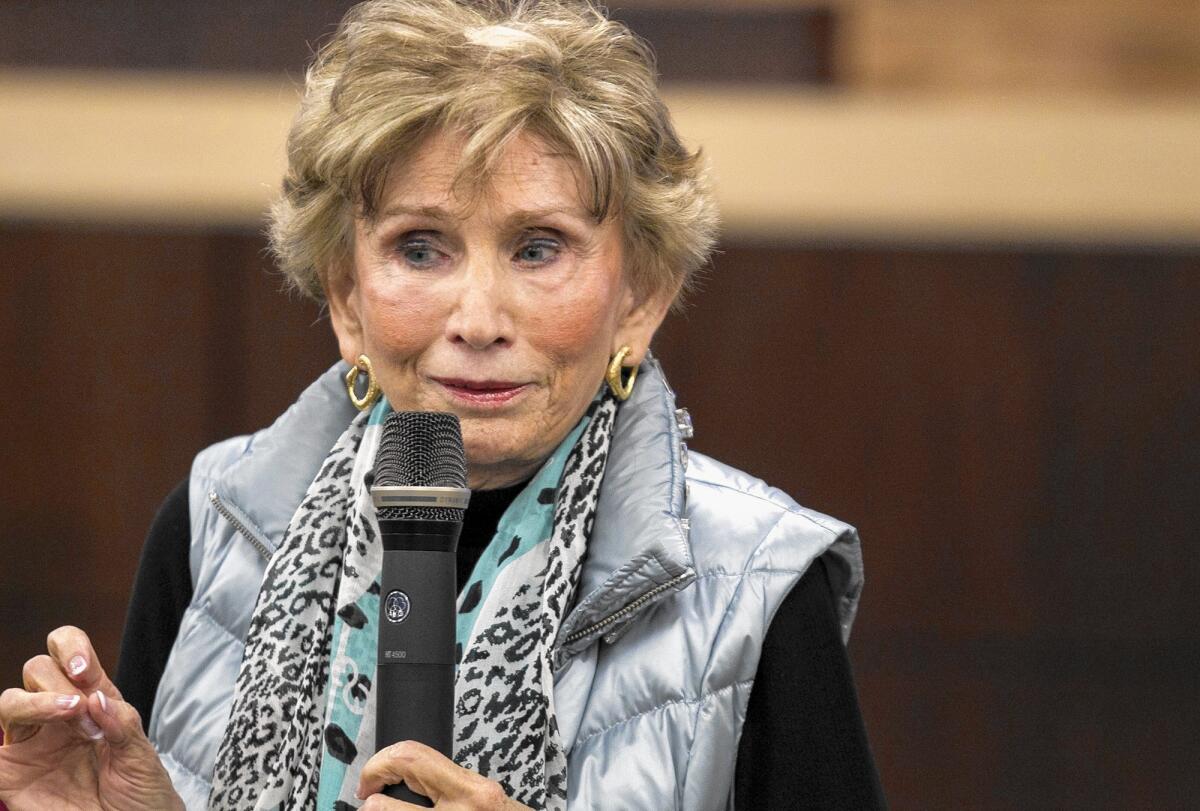‘They could never murder my spirit,’ Auschwitz survivor tells Whittier Law School students

The power of storytelling came to life at Whittier Law School as students and faculty gathered Wednesday on the Costa Mesa campus to hear Holocaust survivor Edith Eva Eger speak on the 71st anniversary of the liberation of the Auschwitz concentration camp.
The United Nations General Assembly in 2005 designated Jan. 27 as International Holocaust Remembrance Day.
Eger’s visit to Whittier Law School was planned by the school’s Jewish Law Society. The group’s president, Ariela Keller, wanted some kind of activity to commemorate the victims of the Holocaust after seeing that nothing was done on campus last year to acknowledge Holocaust Remembrance Day.
“As law students, we’re taught to advocate for social and legal justice, whether it’s for something that happened in the past, present or future,” Keller said. “Not only is the day important, but keeping these stories alive are important as well.”
Among those stories is one belonging to someone very close to Keller — her father, Alexander.
Alexander Keller, born in Budapest, Hungary, in 1942, never got to meet his own father. During World War II, Alexander’s father was deported from Hungary and forced by the Nazis to build the railroad tracks that would later take millions to concentration camps, Ariela said.

In September 1942, when Alexander was 5 months old, his mother, Ilonka Keller, received news that her husband had died. It is unclear whether he was shot by the Nazis or froze to death, Ariela said.
Ilonka took her child and fled from basement to basement as the Nazis searched for Jews.
After World War II, Alexander and his mother journeyed from Hungary to Austria, where they took a ship to the United States. He was 14 years old when they arrived in New York.
“I consider myself very lucky,” Alexander said Wednesday at the law school. “There’s no question about that.”
The Jewish Law Society turned to the USC Shoah Foundation, Holocaust museums in Los Angeles and its own research to find a guest speaker for the campus event.
More than 30 Whittier students and faculty members gathered at the school’s legal clinic to hear Eger’s survival story.
Nazis rounded up Eger and her family when she was a teenager in Hungary, she said. They were packed onto a train headed for the Auschwitz concentration camp in Nazi-occupied Poland.
Upon arriving, camp officer Josef Mengele ordered Eger to separate from her mother. He told the girl that her mother was going to take a shower.
Later, Eger tried to find her mother. When smoke began to rise out of a chimney, she was told that’s where her mother was.
Eger later learned that both her parents were killed in gas chambers.
Eger, 88, said she shares her story so others can learn about history. Otherwise, the world is doomed to repeat itself, she said.

Some Jewish Law Society members said they didn’t begin to delve into the history of the Holocaust until their high school and even college years.
Costa Mesa High School social studies teacher Gary Gonzalez said he has his students study the topic during the class’ World War II unit.
He said his class also discusses the Armenian genocide in the World War I unit and genocides in Darfur and Rwanda.
“I’ll always remind my students that the Holocaust was not the first nor the last genocide of the 20th century,” Gonzalez said. “It’s important to know how these events occur. We don’t want history to repeat itself.”
Auschwitz was liberated by Soviet forces on Jan. 27, 1945. Having survived disease and slave labor in the camp, Eger immigrated to the United States in 1949.
She became a clinical psychologist specializing in the treatment of post-traumatic stress disorder. She now lives in La Jolla.
Eger also is a great-grandmother to three boys whom she calls her greatest pride and joy.
“I was always told [in Auschwitz] that the only way I was going to get out was as a corpse,” Eger said. “I knew that on any day I could be beaten or sent to the gas chamber. But I knew no matter what, they could never murder my spirit.”
Another date, known as Yom Hashoah at the beginning of May, also is dedicated within the Jewish community to remembering the Holocaust, Keller said.
